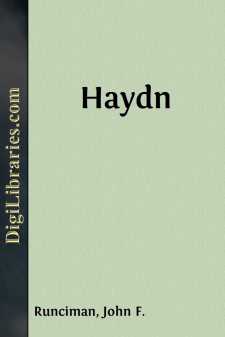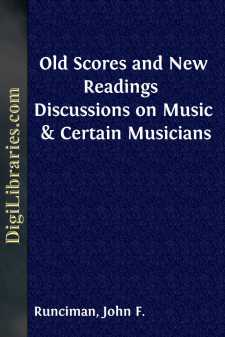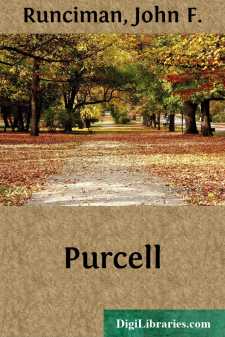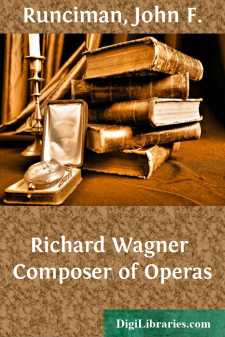Categories
- Antiques & Collectibles 13
- Architecture 36
- Art 48
- Bibles 22
- Biography & Autobiography 813
- Body, Mind & Spirit 142
- Business & Economics 28
- Children's Books 17
- Children's Fiction 14
- Computers 4
- Cooking 94
- Crafts & Hobbies 4
- Drama 346
- Education 46
- Family & Relationships 57
- Fiction 11829
- Games 19
- Gardening 17
- Health & Fitness 34
- History 1377
- House & Home 1
- Humor 147
- Juvenile Fiction 1873
- Juvenile Nonfiction 202
- Language Arts & Disciplines 88
- Law 16
- Literary Collections 686
- Literary Criticism 179
- Mathematics 13
- Medical 41
- Music 40
- Nature 179
- Non-Classifiable 1768
- Performing Arts 7
- Periodicals 1453
- Philosophy 64
- Photography 2
- Poetry 896
- Political Science 203
- Psychology 42
- Reference 154
- Religion 513
- Science 126
- Self-Help 84
- Social Science 81
- Sports & Recreation 34
- Study Aids 3
- Technology & Engineering 59
- Transportation 23
- Travel 463
- True Crime 29
Haydn
by: John F. Runciman
Categories:
Description:
Excerpt
CHAPTER I
JOSEPH HAYDN
It is, as a rule, inexpedient to begin a book with the peroration. Children are spared the physic of the moral till they have sucked in the sweetness of the tale. Adults may draw from a book what of good there is in it, and close it before reaching the chapter usually devoted to fine writing. But the case of Haydn is extraordinary. One can only sustain interest in a biography of the man by an ever-present sense that he is scarcely to be written about. All an author can do is, in few or many words, to put a conundrum to the reader—a conundrum that cannot even be stated in exciting terms. This apparition and wonder-worker of the eighteenth century, Franz Joseph Haydn, is compact of paradoxes and contradictions. Born a peasant, and remaining in thought and speech a peasant all his days, he became the friend of princes, dukes, and, generally speaking, very high society indeed—and this in days when class distinctions had to be observed. He effected a revolution in music, and revolutionists must have daring; and save in music he showed no sign of unusual daring. His shaping and handling of new forms called for high intellect, and he displayed no intellect whatever in any other way—nothing beyond a canny, cunning shrewdness. Until he was sixty his life was a plodding one of dull regularity and routine; only his later adventures in England are in themselves of interest. The bare facts of his existence might be given in a few pages. Look at him from any point of view, and we see nothing but his simplicity; yet it is hard to believe that a man who achieved such great things was in reality simple. If only we had his inner spiritual biography! And even then one wonders whether we would have much. If Haydn actually knew his own secret—which I take leave to doubt—he certainly kept it. "The daemon of music," said Wagner, "revealing itself through the mind of a child"—which tells us nothing. In reading his Life we must perpetually bear in mind the mighty changes he wrought in and for music, else we shall not read far. Wherefore, first roughly to outline his achievement is the reason why I open with a peroration of a sort.
Haydn found music in the eighteenth-century stage, and carried it on to the nineteenth-century stage—in some respects a very advanced nineteenth-century stage. The problem he had to solve was as easy as that set by Columbus to the wiseacres, when once it was worked. It was how to combine organic unity of form and continuity with dramatic variety and the expressiveness of simple heartfelt song. From the date of the invention of music written and sung in parts, a similar problem had been set successive generations of musicians, and solved by each according to its needs and lights. At first words were indispensable; they were, if not the backbone of the music, at least the string on which the pearls might be strung. The first veritable composers—in setting, for instance, the words of the Mass—took for a beginning a fragment of Church melody, or, to the great scandal of the ecclesiastics, secular melody....






